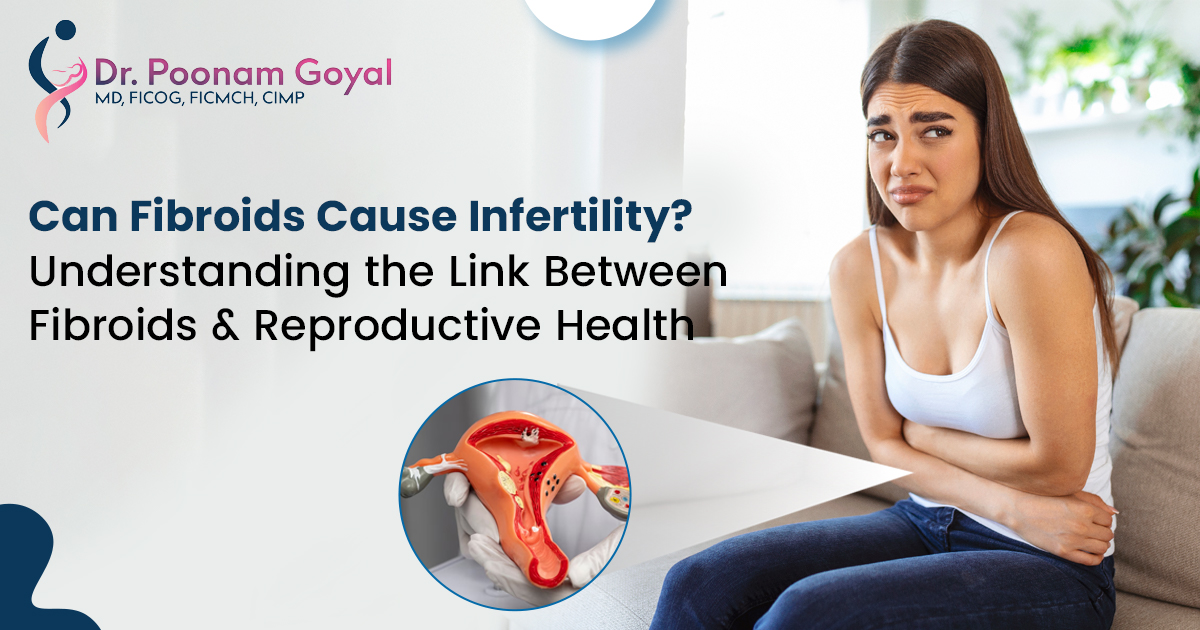
Uterine leiomyomas, or fibroids, are noncancerous growths on or in the uterus. While many women may have fibroids without any noticeable symptoms, they can, in some cases, significantly impact reproductive health and even cause infertility. Understanding the link between fibroids and fertility is crucial for women facing challenges in conception.
What Are Fibroids?
Fibroids are composed of smooth muscle cells and connective tissue. They vary in size, shape, and location within the uterus. Dr. Poonam Goyal, the Best IVF doctor in Delhi mentions that fibroids can be classified into different types depending on where they grow.
Intramural Fibroids: These grow inside the uterus's muscular wall.
Subserosal Fibroids: They grow on the uterus' outer wall.
Submucosal Fibroids: These are found beneath the inner lining of the uterus and are often linked to fertility issues.
Pedunculated Fibroids: These grow on a stalk-like structure inside or outside the uterus.
How Do Fibroids Affect Fertility?
Although fibroids are not always a direct cause of infertility, they can interfere with conception and pregnancy depending on their size and location. Here’s how fibroids can impact fertility.
Disruption of Implantation: Submucosal fibroids, which grow within the uterine cavity, can distort the shape of the uterus, making it difficult for a fertilized egg to implant properly. This can lead to repeated miscarriages or an inability to conceive.
Blockage of Fallopian Tubes: Large fibroids, especially those on the outer wall of the uterus (subserosal), can sometimes block the fallopian tubes, preventing sperm from reaching the egg or the fertilized egg from travelling to the uterus.
Changes in Uterine Blood Flow: Fibroids can alter the blood supply to the uterus, potentially affecting the endometrial lining’s ability to support embryo implantation.
Impact on Sperm Transport: In some cases, fibroids can alter the shape of the cervix, making it difficult for sperm to pass through and reach the egg.
Complications During Pregnancy: Women with fibroids are at higher risk of pregnancy complications, including preterm labour, placental abruption, and cesarean section. This makes it more difficult to achieve and sustain a healthy pregnancy.
Fibroid-Related Infertility Treatment Options
For women diagnosed with fibroid-related infertility, treatment options depend on the severity and impact of the fibroids. Common treatments include:
Medications: Hormonal treatments, such as GnRH agonists, can shrink fibroids temporarily, though this is usually a short-term solution and may not directly improve fertility.
Surgery
Myomectomy: This surgical procedure involves removing fibroids while preserving the uterus, making it an option for women who want to maintain fertility.
Hysteroscopic Myomectomy: If fibroids are within the uterine cavity, this minimally invasive procedure can be used to remove them.
Fertility Assistance: For women who struggle to conceive due to fibroids, assisted reproductive technologies (ART) like in vitro fertilization (IVF) may be recommended.
Dr. Poonam Goyal | Expert in Gynaecology and ART Treatments
Dr. Poonam Goyal, a highly regarded expert in gynaecology and assisted reproductive treatments (ART), has extensive experience in treating women with fibroid-related infertility. As one of the Best IVF doctors in Delhi, Dr. Goyal specializes in helping women overcome the challenges posed by fibroids and other reproductive health issues. She provides personalized treatment plans that focus on both removing fibroids and optimizing fertility outcomes.
Managing Fibroids and Fertility | What You Should Know
If you suspect fibroids are affecting your fertility, it’s essential to consult with a specialist who can offer the right diagnostic tools and treatment options. Advanced imaging techniques like ultrasounds, MRIs, and hysteroscopies are often used to detect fibroids and assess their impact on fertility.
Women with fibroids should also consider lifestyle factors that may help manage symptoms. Maintaining a healthy weight, eating a balanced diet rich in fruits and vegetables, and managing stress can support overall reproductive health, even when fibroids are present.
Conclusion
Fibroids can undoubtedly have a significant impact on fertility, depending on their size, number, and location. While not all women with fibroids will experience infertility, those who do have options, including medical treatments and assisted reproductive technologies.
With the expertise of specialists like Dr. Poonam Goyal, the Best IVF doctor in Delhi, women facing fibroid-related infertility can explore treatments tailored to their unique needs. Whether through surgical intervention or IVF, achieving a healthy pregnancy is possible for many women dealing with fibroids.